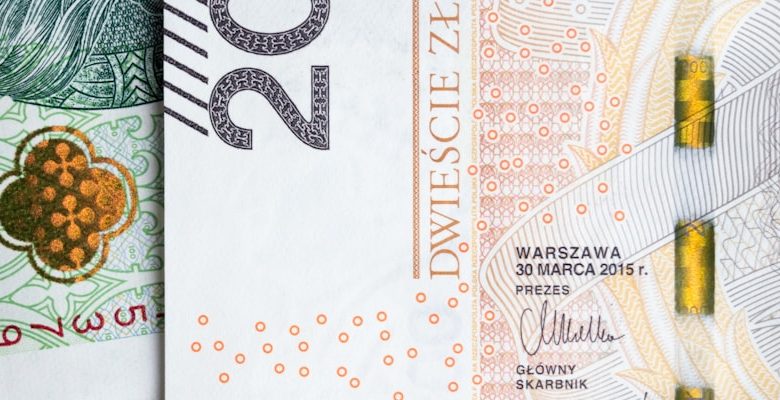How DeFi Is Empowering Users with Financial Sovereignty

- Understanding the concept of DeFi
- The rise of decentralized finance
- Empowering users through financial sovereignty
- The benefits of decentralized finance
- Challenges and risks in the DeFi space
- The future of financial autonomy with DeFi
Understanding the concept of DeFi
DeFi, short for Decentralized Finance, is a revolutionary concept that is changing the way users interact with financial services. In traditional finance, intermediaries such as banks and financial institutions play a central role in facilitating transactions and managing assets. However, DeFi eliminates the need for intermediaries by leveraging blockchain technology to create a peer-to-peer financial system.
One of the key principles of DeFi is financial sovereignty, which refers to the idea that individuals should have full control over their financial assets and transactions. By using smart contracts and decentralized applications (DApps), users can access a wide range of financial services, such as lending, borrowing, trading, and earning interest, without having to rely on third parties.
The concept of DeFi is based on the principles of transparency, security, and accessibility. Transactions on the blockchain are transparent and immutable, meaning that anyone can verify the validity of a transaction. Additionally, the use of smart contracts ensures that transactions are secure and cannot be tampered with. Finally, DeFi is accessible to anyone with an internet connection, allowing users from all over the world to participate in the financial system.
Overall, DeFi is empowering users with the ability to take control of their finances and access a wide range of financial services without the need for intermediaries. By understanding the concept of DeFi and embracing this new paradigm, users can achieve greater financial freedom and independence.
The rise of decentralized finance
Decentralized finance, also known as DeFi, has been gaining significant traction in the financial world in recent years. DeFi refers to a system that aims to recreate traditional financial systems using blockchain technology, making it more transparent, open, and accessible to everyone. One of the key advantages of DeFi is its ability to empower users with financial sovereignty, allowing them to have full control over their assets without the need for intermediaries like banks or financial institutions.
One of the main drivers behind the rise of DeFi is the growing dissatisfaction with the traditional financial system, which is often plagued by high fees, slow transaction times, and lack of transparency. DeFi provides an alternative that is not only more efficient and cost-effective but also puts the power back into the hands of the users. By leveraging smart contracts and blockchain technology, DeFi platforms enable users to access a wide range of financial services, such as lending, borrowing, trading, and investing, without the need for a centralized authority.
Furthermore, DeFi allows users to participate in the financial system regardless of their location or financial status. This inclusivity is a game-changer for many individuals who have been excluded from traditional financial services due to various reasons. With DeFi, anyone with an internet connection can access a wide range of financial products and services, leveling the playing field and democratizing finance.
In addition to empowering users with financial sovereignty, DeFi also offers the potential for significant financial gains. Many DeFi platforms offer attractive interest rates for lending and borrowing, as well as opportunities for trading and investing in various assets. This has attracted a growing number of users who are looking to grow their wealth and take control of their financial future.
Overall, the rise of decentralized finance represents a paradigm shift in the financial industry, offering users a new way to interact with the global financial system. By providing transparency, accessibility, and financial sovereignty, DeFi is revolutionizing the way we think about finance and empowering individuals to take control of their financial destiny.
Empowering users through financial sovereignty
Decentralized Finance (DeFi) is revolutionizing the way individuals interact with financial services by offering a new level of financial sovereignty. Instead of relying on traditional banks or financial institutions, users can now access a wide range of financial products and services directly on the blockchain. This shift towards decentralized systems empowers users to have full control over their assets and transactions without the need for intermediaries.
One of the key benefits of DeFi is that it allows users to access financial services without having to rely on a central authority. This means that individuals can participate in various financial activities such as lending, borrowing, and trading without the need for permission from a third party. By eliminating intermediaries, users can enjoy lower fees, faster transactions, and greater transparency in their financial activities.
Furthermore, DeFi enables users to have ownership and control over their assets at all times. Instead of entrusting their funds to a centralized institution, users can securely store their assets in self-custodied wallets on the blockchain. This gives individuals the freedom to transact and manage their finances without the risk of censorship or seizure by external parties.
The benefits of decentralized finance
Decentralized finance, or DeFi, offers a wide range of benefits to users seeking financial sovereignty and independence from traditional financial systems. By leveraging blockchain technology, DeFi platforms enable users to access financial services without the need for intermediaries such as banks or other centralized institutions.
One of the key advantages of DeFi is its ability to provide users with greater control over their assets. With DeFi platforms, users hold their private keys and have full ownership of their funds, eliminating the risk of funds being frozen or seized by third parties. This gives users the freedom to transact and invest as they see fit, without restrictions or censorship.
Another benefit of DeFi is its accessibility. Traditional financial services are often exclusive and require users to meet certain criteria or pay high fees. In contrast, DeFi platforms are open to anyone with an internet connection, allowing users from around the world to participate in a wide range of financial activities, such as lending, borrowing, and trading.
Additionally, DeFi offers users the opportunity to earn passive income through various mechanisms such as staking, liquidity provision, and yield farming. By participating in these activities, users can put their assets to work and generate returns, all without relying on traditional financial institutions or intermediaries.
Overall, decentralized finance is revolutionizing the way people interact with money and financial services. By empowering users with financial sovereignty, DeFi is democratizing finance and creating a more inclusive and equitable financial system for all.
Challenges and risks in the DeFi space
When it comes to the DeFi space, there are certainly challenges and risks that users need to be aware of. One of the main challenges is the potential for smart contract bugs or vulnerabilities. Since DeFi platforms are built on smart contracts, any coding errors can result in significant financial losses for users. Additionally, the decentralized nature of DeFi means that there is no central authority to turn to in case of fraud or hacking.
Another risk in the DeFi space is the lack of regulation. While some users appreciate the freedom and autonomy that comes with DeFi, others may be concerned about the lack of oversight and investor protection. This can make it easier for bad actors to take advantage of unsuspecting users.
Furthermore, the fast-paced and constantly evolving nature of DeFi can be overwhelming for newcomers. With new projects and platforms launching regularly, it can be challenging to keep up with the latest trends and technologies. This can lead to users making uninformed decisions or falling victim to scams.
The future of financial autonomy with DeFi
Decentralized Finance (DeFi) is revolutionizing the way users interact with financial services, offering a new level of autonomy and control over their assets. With DeFi, individuals can access a wide range of financial products and services without relying on traditional banking institutions. This shift towards financial autonomy is empowering users to take control of their own finances and make decisions that align with their values and goals.
One of the key benefits of DeFi is the ability for users to maintain ownership of their assets at all times. By leveraging blockchain technology and smart contracts, individuals can securely manage their funds without the need for intermediaries. This level of control not only reduces the risk of fraud and theft but also eliminates the fees and delays associated with traditional financial transactions.
Furthermore, DeFi platforms are designed to be accessible to anyone with an internet connection, enabling users from around the world to participate in the global economy. This inclusivity is particularly beneficial for individuals in underserved communities who may not have access to traditional banking services. By democratizing finance, DeFi is leveling the playing field and giving everyone the opportunity to build wealth and financial security.



